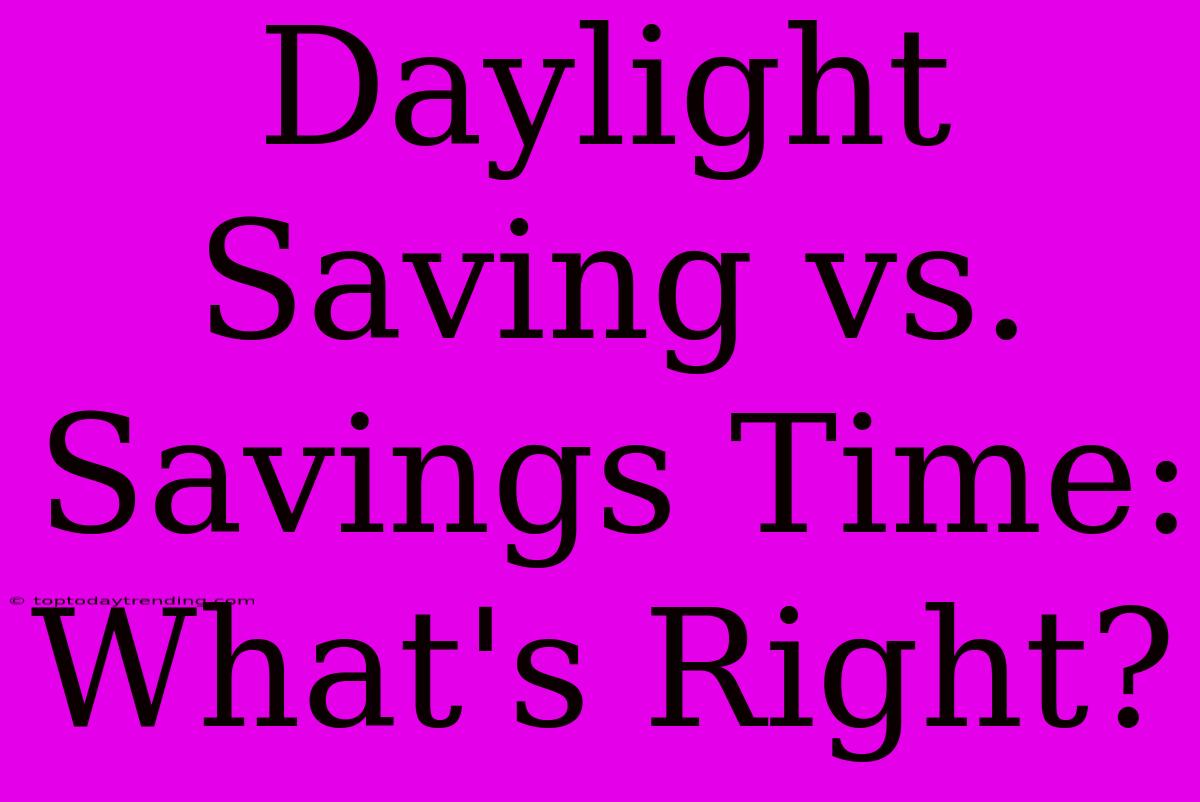Daylight Saving vs. Standard Time: What's Right?
The annual ritual of springing forward and falling back is a familiar one for most of us. But the question of whether daylight saving time (DST) is beneficial or not continues to spark debate. While many enjoy the extra daylight hours in the summer, others argue that the time change disrupts our sleep patterns and health, and that it's simply not worth the hassle.
The History of Daylight Saving Time
The idea of shifting the clock forward during the summer months was first proposed by Benjamin Franklin in the 18th century. However, it wasn't until World War I that DST was first adopted in the United States, with the goal of saving energy and resources. The practice was revived during World War II and became a permanent fixture in the U.S. in 1966.
Arguments for Daylight Saving Time
Proponents of DST argue that it:
- Saves energy: By extending daylight hours into the evening, people can spend less time using artificial light.
- Boosts the economy: DST encourages more outdoor activities and spending, particularly in retail and hospitality industries.
- Reduces crime: Some studies suggest that crime rates may be lower during daylight saving time due to increased visibility and outdoor activity.
- Improves health: Daylight exposure can be beneficial for mental and physical well-being, and DST allows for more time to enjoy sunlight.
Arguments Against Daylight Saving Time
Opponents of DST argue that it:
- Disrupts sleep patterns: The time change can lead to sleep deprivation, fatigue, and increased risk of accidents.
- Impacts health: Studies have shown that DST can negatively affect cardiovascular health, mood, and even cognitive function.
- Causes confusion and inconvenience: Scheduling and travel plans can become complicated, and some people find it difficult to adjust to the time change.
- Doesn't save energy: Modern studies suggest that energy savings from DST may be minimal or nonexistent.
The Debate Continues
The debate over DST is far from settled. While some countries have adopted DST permanently, others have abandoned it entirely. In the United States, the issue has become more complex with calls for a permanent standard time or abolishing DST altogether.
The Future of DST
The future of DST remains uncertain. Some argue that the potential health and economic downsides outweigh any perceived benefits. Others believe that the social and cultural aspects of the time change outweigh the potential drawbacks. Ultimately, the decision of whether to keep or abolish DST is a complex one that involves weighing various factors, including societal, economic, and health implications.
Ultimately, the best course of action may vary depending on individual circumstances and preferences. Whether you love the extra daylight hours or despise the time change, it's important to be informed about the potential benefits and drawbacks of DST before forming an opinion.

